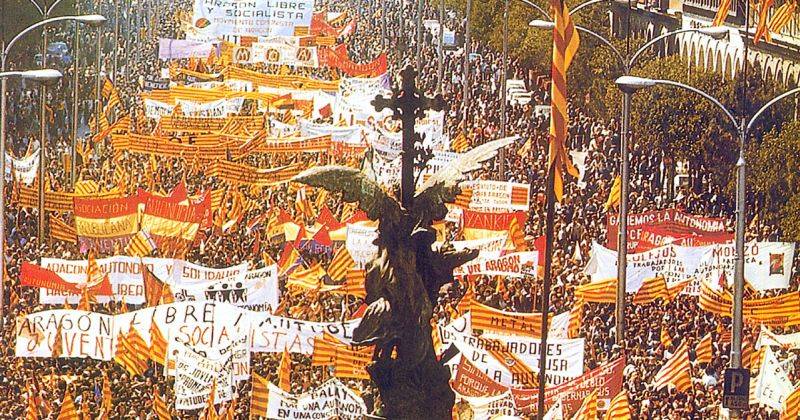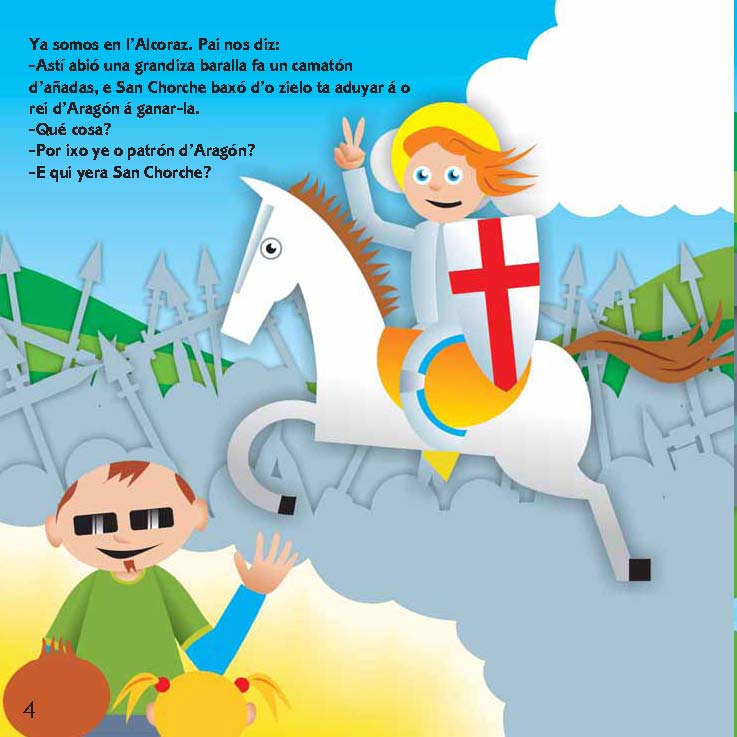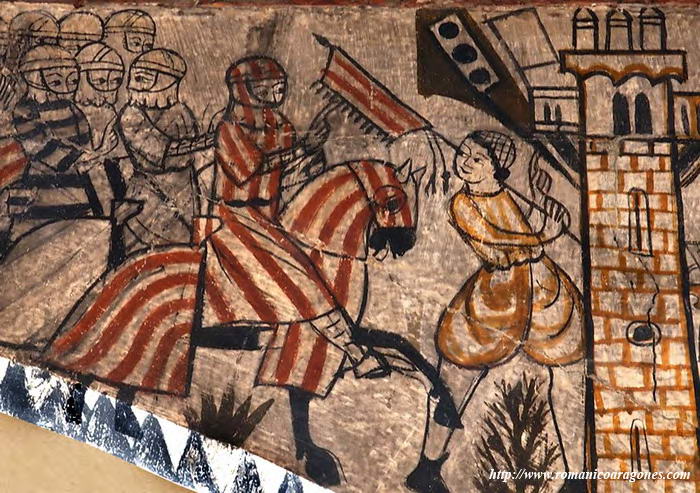Esta entrada también está disponible en: Aragonés Català Español Français English
DRAGON’S SNACK
It is true that sometimes the need is urgent, but, we must admit, when they told the usual kids who were sent with the lambs to appease the dragon’s anger, the look on their faces must have been something to see:
– Darling, you know what you were saying yesterday about wanting to see more of the world? Well, we’ve come up with a destination.
Oh, yeah? A safari?
– Well, animals, there are some.
Then it turns out that one day it’s the princess’s turn to go and, just then, not a day before or a day after, St. George appears to rescue her, while I, being the daughter of commoners, am left there to my fate. That is, I come back as a ghost and haunt him for life.
Maybe the princess is his crush and he wanted to impress her, but he’s gone over the top with me and I won’t forgive him for that.
It’s true that he fought with the Aragonese, but I don’t know if that’s enough to make up for it, I’m going to give it a second thought. What you can find out is which decisive battle Pedro I won with his help. Take a look below.
Description
Saint George has been the patron saint of Aragon since the time when the lands of our autonomous community constituted a kingdom in the Middle Ages. In the calendar, the 23rd of April is dedicated to him. This date is also closely linked to the recovery of Aragonese self-government during the transition to democracy in Spain, whose 1978 Constitution established the State of the Autonomous Communities. Since that year, 23 April has been a day to celebrate coexistence and demand improvements for Aragon. Both official institutions and citizens in general participate in this festive and vindictive character.

The objectives and contents of this proposal can be related to the Day of the Rights and Freedoms of Aragon (20 December). It also relates to the Spanish Constitution Day (6 December).
A detail
According to tradition, Saint George (a Roman soldier venerated as a Christian martyr in many places and identified as a legendary knight vanquishing dragons) appeared on horseback helping the Aragonese troops of Peter I to win the battle of Alcoraz, decisive in the conquest of Huesca from the Muslim king of Saragossa. In 1201 Peter II founded the military order of Saint George of Alfama and James I places him in the conquest of Mallorca; in the 13th century brotherhoods were founded in Huesca and Teruel under the patronage of this saint. Although no specific provision has been documented, Saint George has been the patron saint of Aragon since the Middle Ages (the Cortes of 1461 already officially declared this patronage) and the maroon cross that he carried on a banner is also shown today on the coat of arms of Aragon. The pilgrimage to the saint’s hermitage in Pueyo de Sancho is a very special tradition in Huesca.

On this day, since 1984, the Government of Aragon has been awarding the Aragon Prizes to outstanding personalities in the fields of culture, research, human and social values… and different institutional and popular events are organised. The coincidence with the Day of the Book gives it a special significance. In many towns and villages, there are exhibition and sales points, author signings…
Many local residents display Aragonese flags in their windows and on their balconies.

Local celebrations of special significance
In Alcañiz there is a very singular performance, the Expiration of the Dragon (video of the 2022 celebration). In another town in Teruel, Ariño, a similar performance is also held (more about this celebration). Both have a great popular participation.
A nougat and cream cake known as “El Lanzón” has also become popular.

A very eloquent curiosity
More information and suggestions for consultation / Suggestions for teachers
- On the web Historia de Aragón you can find information on the origin of Saint George, his relationship with Aragon, the legends, the mixture of reality and fiction…
- Very interesting is the collective book dedicated to San Jorge in the CAI 100 collection (year 2000), in free access.
- Interesting and curious data can also be found in the book by Agustín Ubieto Legends for a parallel history of medieval Aragon, edited by the Fernando el Católico Institution and available in free access.
- [An approximation to the reality of Aragonese self-government through its Statute, explained in an agile and entertaining way, in the Statute of Aragon of 2007]. [Didactic guide]. Zaragoza, Government of Aragon, 2008. Free access.
- A context view: [Aragon: its century to century identity]. [Didactic guide (Government of Aragon, 2013)]. Digitised version.
- The coat of Arms of Aragon (historical review and references to expand)].
Based on these premises, a series of activities aimed at students can be developed: exploration of some of the pages referred to, a simple questionnaire to gauge understanding of content, a search for information about some of the issues raised, exploration of experiences or memories on the subject in the family context, exchange of ideas and opinions, composition of text…
Objectives that this proposal helps to achieve
ESO:
- To assume responsibly their duties, to know and exercise their rights in respect for others, to practice tolerance, cooperation and solidarity among individuals and groups, to exercise in dialogue, strengthening human rights and equal treatment and opportunities between women and men, as common values of a plural society, and to prepare for the exercise of democratic citizenship.
- To value and respect the difference between the sexes and the equality of rights and opportunities between them. Reject discrimination against people on the basis of sex or any other personal or social condition or circumstance. To reject stereotypes that discriminate between men and women, as well as any manifestation of violence against women.
Baccalaureate:
- To exercise democratic citizenship, from a global perspective, and acquire a responsible civic conscience, inspired by the values of the Spanish Constitution, as well as by human rights, which fosters co-responsibility in the construction of a just and equitable society.
- To consolidate personal and social maturity that allows them to act responsibly and autonomously and to develop their critical spirit. To foresee and resolve personal, family and social conflicts peacefully.
- To promote effective equality of rights and opportunities between men and women, to analyse and critically assess existing inequalities and discrimination, and in particular violence against women, and to promote real equality and non-discrimination of people for any personal or social condition or circumstance, with special attention to people with disabilities.
Subjects with witch it can be linked
- Geography and History / Ethical values (ESO, 1st and 2nd cycles)
- Education for citizenship and human rights (ESO, 2nd cycle)
- Baccalaureate: To be allocated according to modality. Priority in “History and Culture of Aragon”
Development of competences
- Social and civic competences
